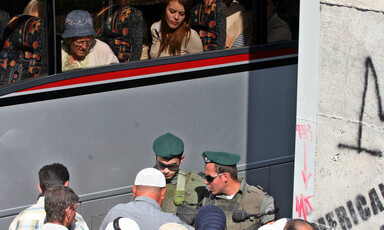Blame the Gazans— Punish them
19 August 2011
According to the Palestine Papers, Saeb Erekat, the so-called chief Palestinian negotiator, once stated, “”If someone sneezes in Tel Aviv, I get the flu in Jericho.” That was probably the only thing that makes sense Erekat ever said regarding the Israeli-Palestinian conflict. Except it wasn’t actually true, unless we think of Erekat, at the moment he made that statement, as every Palestinian in Gaza and replace “Jericho” with “Gaza”. So “if someone sneezes in Tel Aviv, Palestinians in Gaza were soon to be blame for it.” Read more about Blame the Gazans— Punish them


